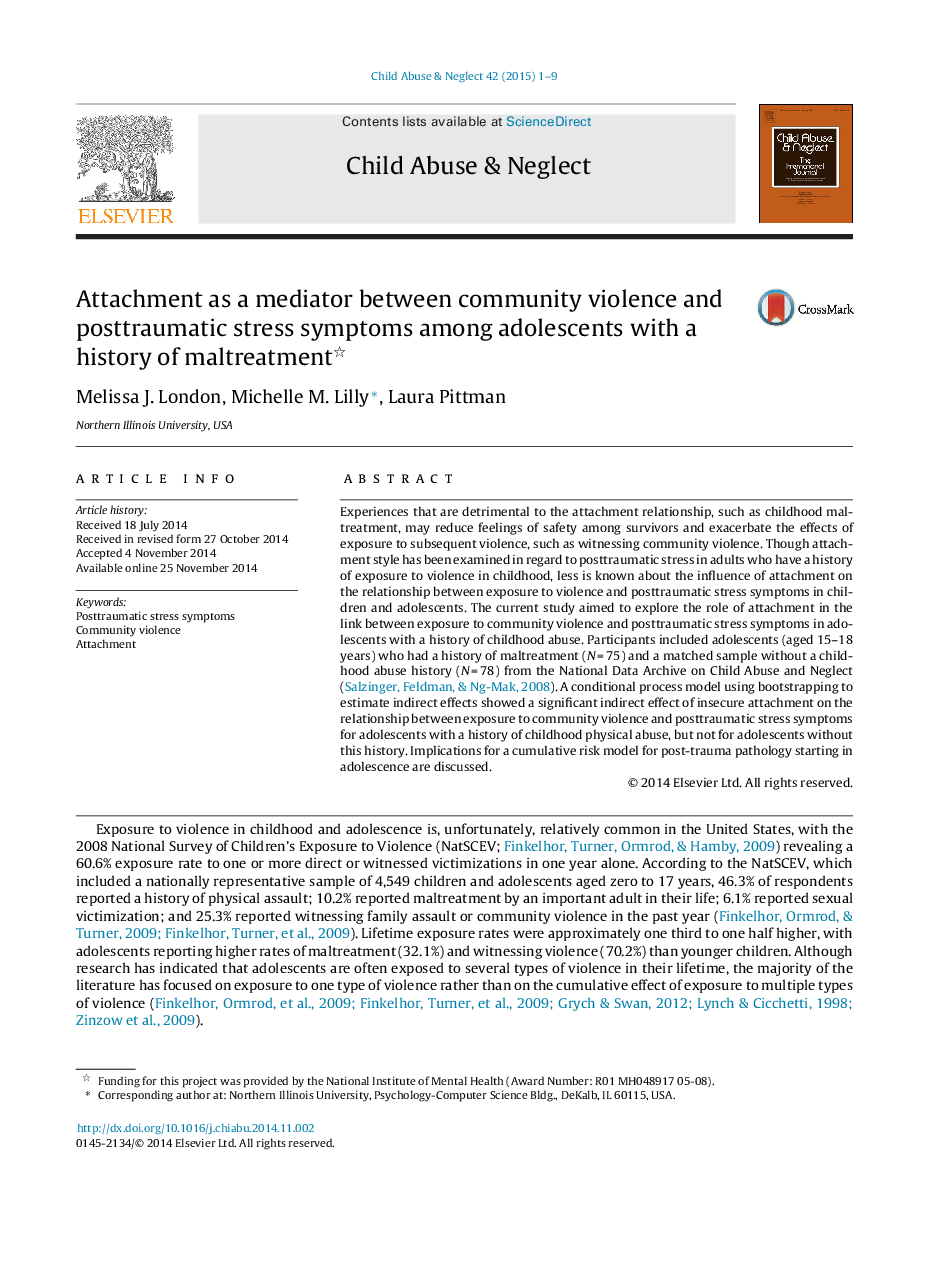| Article ID | Journal | Published Year | Pages | File Type |
|---|---|---|---|---|
| 6832640 | Child Abuse & Neglect | 2015 | 9 Pages |
Abstract
Experiences that are detrimental to the attachment relationship, such as childhood maltreatment, may reduce feelings of safety among survivors and exacerbate the effects of exposure to subsequent violence, such as witnessing community violence. Though attachment style has been examined in regard to posttraumatic stress in adults who have a history of exposure to violence in childhood, less is known about the influence of attachment on the relationship between exposure to violence and posttraumatic stress symptoms in children and adolescents. The current study aimed to explore the role of attachment in the link between exposure to community violence and posttraumatic stress symptoms in adolescents with a history of childhood abuse. Participants included adolescents (aged 15-18 years) who had a history of maltreatment (NÂ =Â 75) and a matched sample without a childhood abuse history (NÂ =Â 78) from the National Data Archive on Child Abuse and Neglect (Salzinger, Feldman, & Ng-Mak, 2008). A conditional process model using bootstrapping to estimate indirect effects showed a significant indirect effect of insecure attachment on the relationship between exposure to community violence and posttraumatic stress symptoms for adolescents with a history of childhood physical abuse, but not for adolescents without this history. Implications for a cumulative risk model for post-trauma pathology starting in adolescence are discussed.
Related Topics
Health Sciences
Medicine and Dentistry
Perinatology, Pediatrics and Child Health
Authors
Melissa J. London, Michelle M. Lilly, Laura Pittman,
